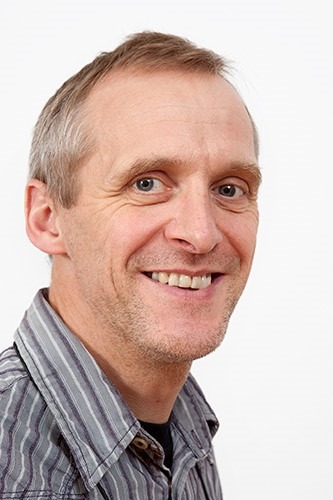We’re bringing our news post series Meet the PIs to a close today with this interview with Dr. John van Opstal.
Based att he Donders Centre for Neuroscience at the Science Faculty of Radboud University, John is one of the co-supervisors of ESR1 – Ignacio Calderon de Palma, ESR2 – Loes Beckers, and ESR3 – Nikki philpott. Below he shares his thoughts on what this role has meant for him and the advice he gives to early-career researchers.

I am fascinated by the sensorimotor aspects of sound localisation and sound tracking; perception is always entangled in a closed loop with action.
John van Opstal
What is an aspect of hearing-related research that still fascinates you today as it did when you first encountered it? I am fascinated by the sensorimotor aspects of sound localisation and sound tracking; perception is always entangled in a closed loop with action. As you move, your acoustic cues change and your brain uses this information to improve its performance.
Is this also what brought you into this field of science? If not, what was the driving factor for you? Yes, my background (PhD) was in the oculomotor research field; electrophysiology in the midbrain (superior colliculus) of trained monkeys and computational modeling of the saccadic eye-movement system. I brought this expertise into the auditory (and audiovisual) domain.
What is your role in MOSAICS and what are your key responsibilities within the project? I am an associated PI in this project, and will act as promotor for the students. I engage in discussions with them wherever I can.
What is your goal for your ESRs? What is it that you want them to take away from this experience as part of MOSAICS?
I hope the ESR’s keep their enthusiasm for research and its potential applications, also after this project is over.
What is the biggest challenge you face as a supervisor, and what has it taught you? In general (not just in for MOSAICS): it is especially difficult to re-charge an ESR when he/she experiences deep motivational problems, e.g. as a result of personal/psychological circumstances, the COVID pandemic, etc. I believe that the only strategy that could turn this around would be to keep focusing on the work, and appear at the work place to be among the colleagues (escape from isolation).
If you could give one key piece of advice to an aspiring early-career researcher in your field, what would that be? If you get stuck: ask colleagues and supervisors! There are no silly questions. And: perseverance is an absolute must. There is no easy path in science.
We warmly thank John for sharing his thoughts in this interview and for supporting the early-career researchers throughout their research journey in MOSAICS. Watch this space for their latest results!
